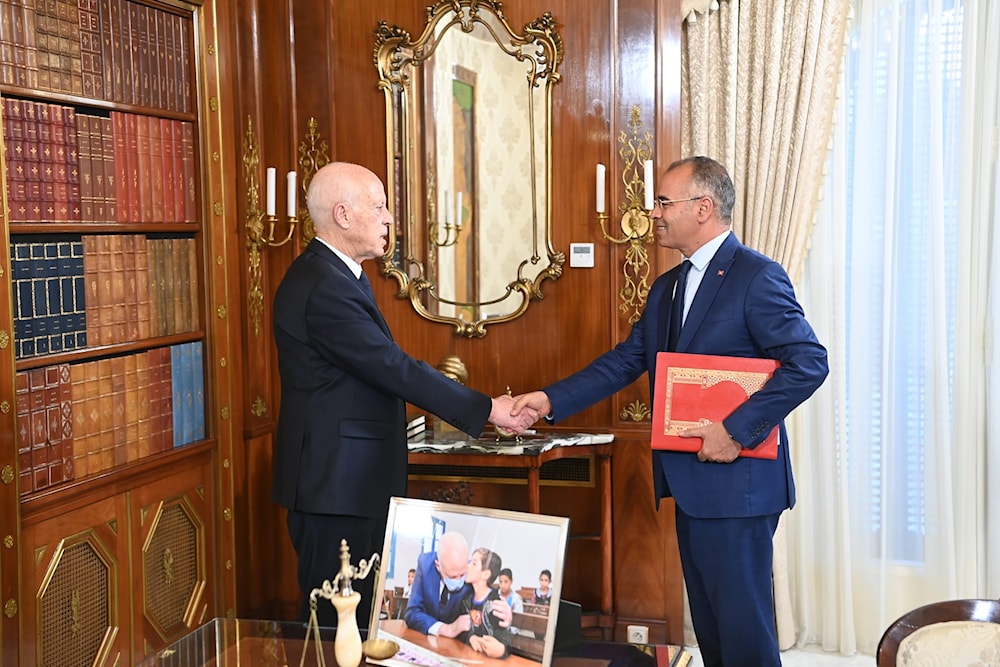Tunisia President Saied dismisses prime minister, appoints replacement
Ahmed Hachani's dismissal comes amid public discontent over recurring water and electricity outages in various parts of the country.
-

Tunisian President Kais Saied shaking hands with Social Affairs Minister Kamel Madouri. (Saied's office)
Tunisian President Kais Saied dismissed Prime Minister Ahmed Hachani on Wednesday without providing any explanation, appointing Social Affairs Minister Kamel Madouri as his replacement, according to a statement from the President's office.
Hachani assumed the role of Prime Minister on August 1 last year, following the dismissal of his predecessor, Najla Bouden, who was also removed from office by Saied without any official reason.
Madouri, who took on the social affairs portfolio in May, is now set to lead the government.
In a social media post, Saied's office shared an image of him shaking hands with Madouri, accompanied by a brief statement noting only that the president had "decided to assign him to head the government, succeeding Mr. Ahmed Hachani."
Just hours before his dismissal, Hachani stated in a video message that the government has made progress on a number of issues despite global challenges, including securing the country's needs for food and energy.
Hachani's dismissal comes amid public discontent over recurring water and electricity outages in various parts of the country.
While the government has claimed that Tunisia is suffering from the ongoing drought, leading to a rationing system for water distribution, Saied has described the water cuts as a conspiracy ahead of the presidential elections, particularly since the dams are full of water.
However, the Ministry of Agriculture reported that the water levels in the dams have become critically low, with only 25% capacity remaining.
Saied, 66, was democratically elected in 2019 but staged a sweeping power grab in 2021, and he is now seeking another term in office in the upcoming elections on October 6.
He officially submitted his candidacy for the election on Monday, while some potential challengers are being barred from running, either through prosecution or imprisonment.
After registering, Saied told reporters that his candidacy was part of "a war of liberation and self-determination" with the goal of "establishing a new republic."
As part of Saied's consolidation of power, Tunisia's constitution was rewritten in 2022 and saw a significant reduction in the powers of the parliament.
Read more: Head of Tunisian People's Movement announces presidential candidacy

 2 Min Read
2 Min Read








